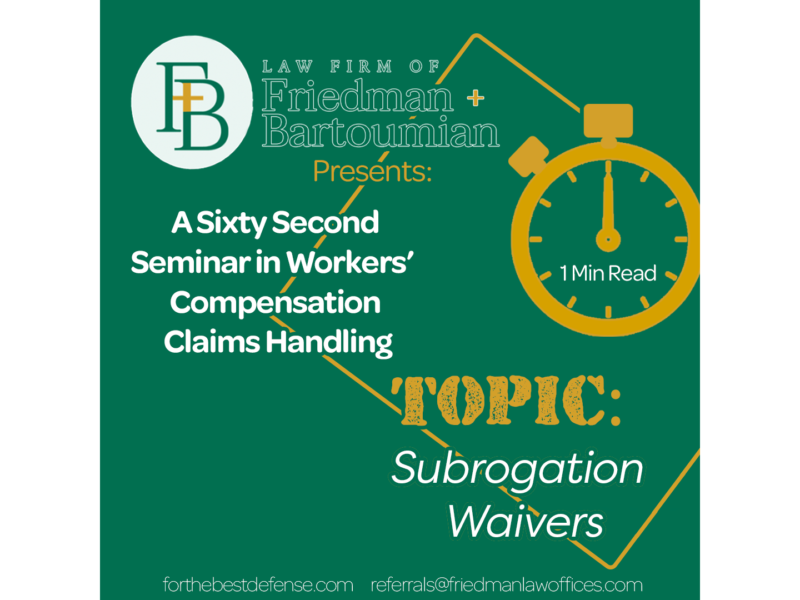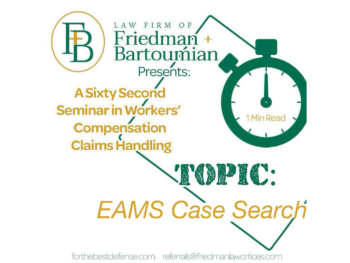Most employers are aware of the concept of subrogation. California Labor Code §3852 specifically allows employers to seek recovery against third parties for reimbursement of workers’ compensation benefits paid due to an industrial injury attributed to third party negligence. Specifically, LC §3852 states:
“Any employer who pays, or becomes obligated to pay compensation, or who pays, or becomes obligated to pay salary in lieu of compensation … may likewise make a claim or bring an action against the third person…”
A claims office is empowered to pursue subrogation on behalf of an employer. Unfortunately, many claims professionals do not realize that an employer may waive subrogation against a responsible third party via a special endorsement to their workers’ compensation insurance policy. Fittingly, the endorsement is called a Waiver of Subrogation, which typically, but not exclusively, occurs in the construction industry. For those having an “Easy-To-Read Insurance Policy” this endorsement may be known as a “Waiver of Our Right to Recovery from Others.”
Employers often waive subrogation, especially against clients who provide them with a lot of business. The last thing an employer wants to do is antagonize a great client by pursuing subrogation against them. Thus, the employer purchases a subrogation waiver endorsement. Sadly, many claims administrators are misinformed about the finer points of subrogation waivers. All they are told is they can’t subrogate because an endorsement to the policy says so. That’s where a major misunderstanding often occurs. Claims adjusters do not realize that such an endorsement is not a blanket waiver. It only acts to waive subrogation against “specific persons or organizations” as identified and named in the endorsement.
One example of this misunderstanding occurred in a case where a worker was seriously injured in an industrial vehicle accident that occurred while traveling to deliver building material to a construction site. The claims adjuster noticed that the employer’s policy contained a waiver of subrogation and because of that waiver, the adjuster believed that subrogation against the adverse driver was prohibited. The adjuster could not have been more mistaken. On top of that, the adjuster had also been told by her supervisor that subrogation was not allowed! Let us reiterate: the subrogation endorsement is not a blanket waiver. Fortunately, the error was discovered prior to expiration of the civil statute of limitations.
By publishing today’s blog, we are hoping to spread the word that a subrogation waiver in an insurance policy does not bar all subrogation. Just remember not to subrogate against those individuals or entities identified in the endorsement. Everyone else is fair game!



 Beware Your Own Witness: A Sixty-Second Seminar in Workers’ Compensation Claims Handling
Beware Your Own Witness: A Sixty-Second Seminar in Workers’ Compensation Claims Handling
Leave a Reply